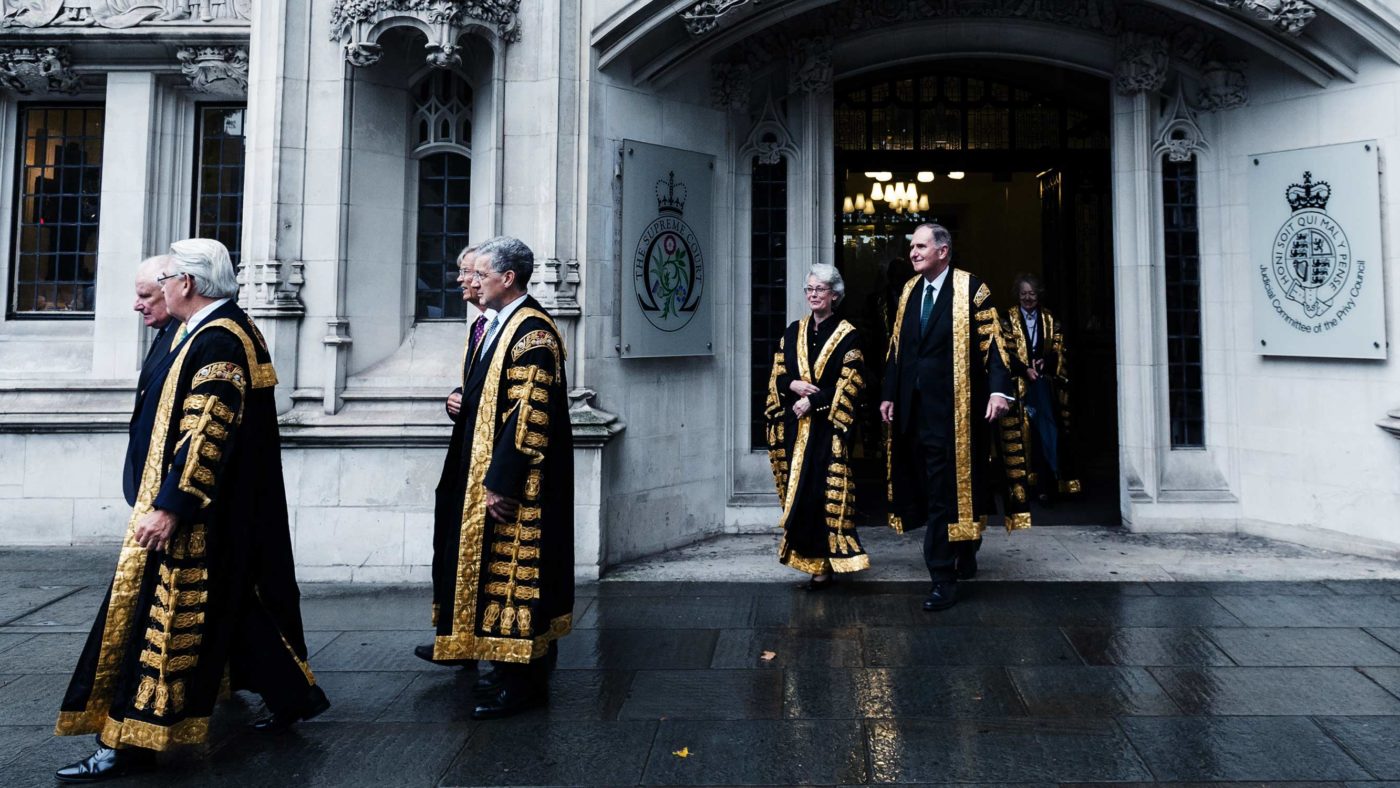Boris Johnson hasn’t had much luck with the courts since he became Prime Minister. In 2019, at the height of the Brexit drama, the Supreme Court handed down a dramatic judgment that his prorogation of Parliament was unlawful. Following that exciting cliffhanger, Boris pledged in his party’s manifesto to reform the courts so that they are ‘not abused to conduct politics by another means’.
The PM could have been forgiven, therefore, for having a small celebration on Monday when the High Court rejected a challenge over his decision not to sack Priti Patel last year over allegations of bullying. If he did (and there has been some interest recently in parties in Number 10), then it may have been premature. While Johnson may have won this battle, he could be losing the war on court reform.
The starting point is to ask what the courts are for, or, more specifically, what they are not for.
Everyone would agree that the judges should not be making political decisions. That is for our elected representatives in Parliament and government, and indeed in local government. Judges should restrict themselves exclusively to matters of fact and law. Indeed, judges are prevented by law from standing for election to Parliament.
However, over recent decades the courts have become more muscular in challenging the Government. For example, take the following extract from an Act of Parliament in 1950 about the Foreign Compensation Commission:
“The determination by the commission of any application made to them… shall not be called into question in any court of law.”
You might think that the wording of that legislation is very clear. However, in a 1969 case the Law Lords (the predecessors of today’s Supreme Court Justices) ruled that, in fact, it meant that a determination by the commission could be called into question in a court of law. The legal reasoning is that if an erroneous decision was made by the commission, then the commission had not in fact made a real ‘determination’ and so it was not covered by this wording.
However convincing you find that argument, it is striking the judges in the case did effectively read a law passed by Parliament in a way totally opposed to how it was written on the page. Laws which purport to exclude challenge in courts like this (known as ouster clauses) are not generally a good thing for us as citizens. You would be rightly indignant if the council illegally decided to bulldoze your house and you could not sue them as they were protected by an ouster clause.
That said, the courts are not really the right place to strike down ouster clauses. MPs and peers should vote against ouster clauses when they are included in draft legislation. It should not be up to judges to assume a quasi-political role in the unfortunate (if common) event that MPs just pass government bills without thinking too hard about them.
This sort of mission creep from judges is evident in the Patel bullying case. The claim made by the FDA, a civil servants’ union, centred on whether the Prime Minister had ‘misinterpreted’ the Ministerial Code as it related to bullying and harassment.
Who the Prime Minister chooses to hire and fire as a minister is one of the most thoroughly political powers in government. Such decisions should be well outside the jurisdiction of the courts. In response to the FDA, the Government argued that the Ministerial Code is fundamentally a political document because it is about ministerial appointments and so could not be the subject of a challenge in court. Further, the Ministerial Code itself is not a law, nor is it required to be written by any law.
Nonetheless, the High Court decided that it could interpret the Ministerial Code, or at least some part of it. Its reasoning was basically that the bullying and harassment wording was not so political that it would prevent the Court from taking part. The judges took an approach of ‘we can interpret it unless there’s a reason not to’, rather than ‘we can only interpret it if there is a reason to do so’. The Court continued that the Prime Minister’s decision to keep Patel in post was consistent with its interpretation of the Code. In other words, the Prime Minister had not misinterpreted the Code, so the FDA lost the case.
In some ways it is a modest step that the courts have allowed themselves to interpret the Ministerial Code – it is not like they made a decision on whether Boris was right not to sack his Home Secretary. But it is another salami slice of the courts inserting themselves in political decision-making: ouster clauses, Brexit in the prorogation case and now the Ministerial Code.
Maybe there is a role for a more powerful judiciary as a check and balance on an over-mighty executive, which is not in any meaningful sense held to account by the legislature. But if we are going to make that decision on our constitution, it should really be decided in the Palace of Westminster by our elected MPs, not across the road in the Supreme Court.
Click here to subscribe to our daily briefing – the best pieces from CapX and across the web.
CapX depends on the generosity of its readers. If you value what we do, please consider making a donation.


